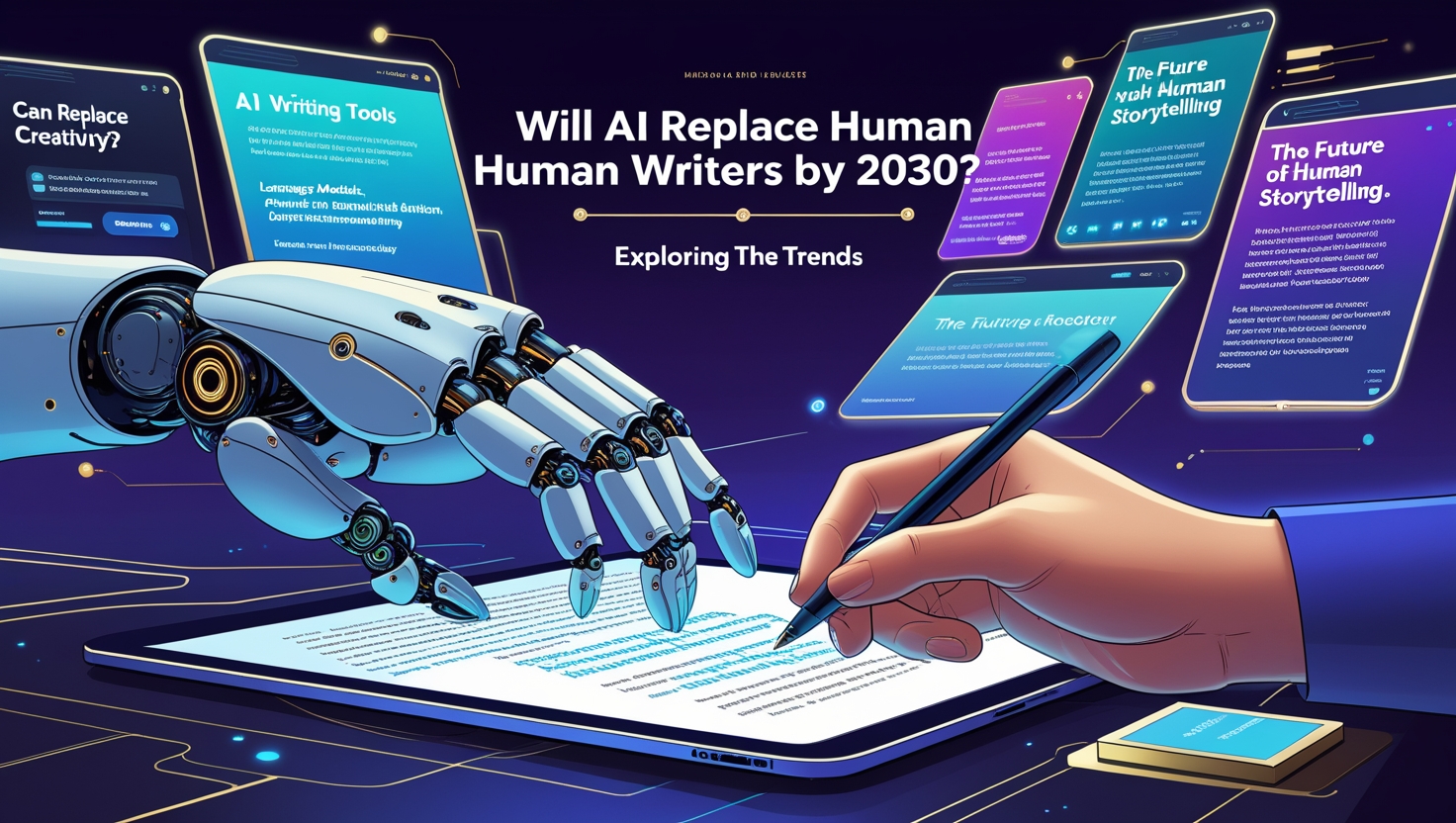As artificial intelligence continues to evolve, one question frequently arises: will AI replace human writers by 2030? AI’s rapid advancements in natural language processing, content generation, and creative writing have sparked debates about the future of human authorship. While AI is making significant strides in the writing field, it’s important to explore the trends and complexities behind this shift to understand whether it will fully replace human writers or simply coexist with them in new and innovative ways.
AI-powered writing tools are already transforming the content creation landscape. Platforms like GPT-3 and other machine learning models are capable of generating coherent, grammatically correct text based on a set of prompts. These tools have been employed to write everything from news articles to product descriptions, and even entire books. In fields where speed and volume are critical, such as marketing or SEO writing, AI can produce large amounts of content quickly and efficiently. Many businesses already use AI to create copy for advertisements, blog posts, and social media, helping to streamline their content strategies and reduce costs.
However, despite AI’s impressive capabilities, there are key limitations that prevent it from fully replacing human writers. AI may excel at generating well-structured text, but it often lacks the emotional depth, nuance, and originality that human writers bring to their work. Writing is not just about stringing words together; it’s about understanding context, empathy, and creativity—traits that are deeply rooted in human experience. AI might be able to mimic human writing, but it cannot yet replicate the unique perspectives and voices that writers develop over years of personal and professional experience.
Furthermore, while AI can process vast amounts of data to generate information-rich content, it struggles with the subtleties of storytelling, complex themes, and cultural context. Human writers draw on their own experiences, emotions, and understanding of society to craft narratives that resonate with readers. This depth of insight is difficult, if not impossible, for AI to replicate. For example, AI might produce a generic travel blog, but a human writer can infuse the piece with personal anecdotes, unique observations, and a sense of connection that engages readers on a deeper level.
The future of writing may not be a binary choice between humans and machines, but rather a collaboration. In the coming years, we are likely to see an increasing trend of human writers working alongside AI tools to enhance their productivity and creativity. AI can assist with tasks like generating initial drafts, suggesting improvements, or offering new ideas, allowing writers to focus more on refining their content and exploring innovative angles. This hybrid approach will enable writers to produce high-quality content more efficiently, while still retaining the essential human elements that make writing compelling.
Another factor to consider is the growing role of AI in niche areas of writing, such as technical writing, legal documentation, and medical content. In these fields, where precision and consistency are paramount, AI is already proving valuable in creating clear and accurate texts. While human oversight will still be necessary to ensure accuracy and compliance, AI’s ability to handle repetitive, formulaic writing tasks will free up human writers to focus on more complex and creative work.
In conclusion, while AI is poised to significantly impact the writing industry by 2030, it is unlikely to fully replace human writers. Instead, AI will serve as a tool that enhances the writing process, enabling writers to be more efficient, productive, and creative. The future of writing will likely be a hybrid one, where human writers and AI work together to produce content that is both technically proficient and emotionally resonant. Far from eliminating the need for human writers, AI is likely to redefine their roles and expand the possibilities of what can be achieved in the world of writing.

